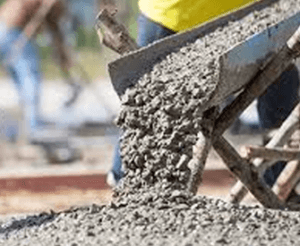
What Does Concrete Contractor Do?
Are you looking to hire a concrete contractor for your next construction project? If so, it's important to understand the role and responsibilities of a concrete contractor before making your decision. This article will provide an overview of what a concrete contractor does, how to choose the right one for your project, and some tips for working effectively with them.What Does a Concrete Contractor Do?
A concrete contractor is a professional who specializes in working with concrete. They are responsible for various tasks related to the construction, repair, and maintenance of concrete structures. Some common jobs that a concrete contractor may undertake include:
1. Concrete pouring and placement: This involves creating the formwork, pouring the concrete mix, and ensuring proper placement and leveling. Concrete contractors use various techniques and tools to achieve the desired finish.
2. Concrete finishing: Once the concrete is poured, a concrete contractor is responsible for finishing the surface to achieve the desired appearance and texture. This can include techniques such as stamping, staining, polishing, or applying a decorative overlay.
3. Concrete repair and restoration: Concrete contractors are often called upon to repair or restore existing concrete structures that have become damaged or deteriorated over time. This may involve patching cracks, replacing sections, or applying protective coatings.
4. Concrete excavation and site preparation: Before any concrete work can begin, a concrete contractor may need to undertake excavation and site preparation. This involves clearing the area, leveling the ground, and ensuring the proper foundation for the concrete.
Choosing the Right Concrete Contractor
When choosing a concrete contractor for your project, there are several factors to consider:
1. Experience: Look for a contractor with a proven track record in the industry. Ask for references and examples of their previous work to ensure they have the necessary expertise.
2. Licensing and Insurance: Make sure the contractor holds the appropriate licenses and has sufficient insurance coverage. This will protect you against any accidents or damages that may occur during the construction process.
3. Specializations: Some concrete contractors may specialize in specific types of work, such as decorative concrete or industrial concrete. Determine your project's requirements and find a contractor with experience in that area.
4. Cost and Timeline: Obtain cost estimates and discuss project timelines with multiple contractors. Compare their proposals to find a balance between price and quality.
Working Effectively with a Concrete Contractor
To ensure a successful collaboration with your chosen concrete contractor, follow these tips:
1. Clear Communication: Clearly communicate your expectations, project requirements, and timelines. Regularly check in with the contractor to ensure everyone is on the same page.
2. Flexibility: Be open to suggestions or modifications proposed by the contractor. They are the experts and may have valuable insights to improve the project.
3. Collaborative problem-solving: If unexpected issues arise during the construction process, work together with the contractor to find innovative solutions.
4. Payment Schedule: Establish a payment schedule in the contract that aligns with project milestones. Ensure that both parties agree before commencing work.
In conclusion, hiring a concrete contractor requires careful consideration of their experience, licensing, and specialization. Effective communication, collaboration, and a mutually agreed-upon payment schedule will help ensure a successful outcome for your concrete project.
By Greenlife Construction | Jan 01, 2023 | Uncategorized | 0 Comments